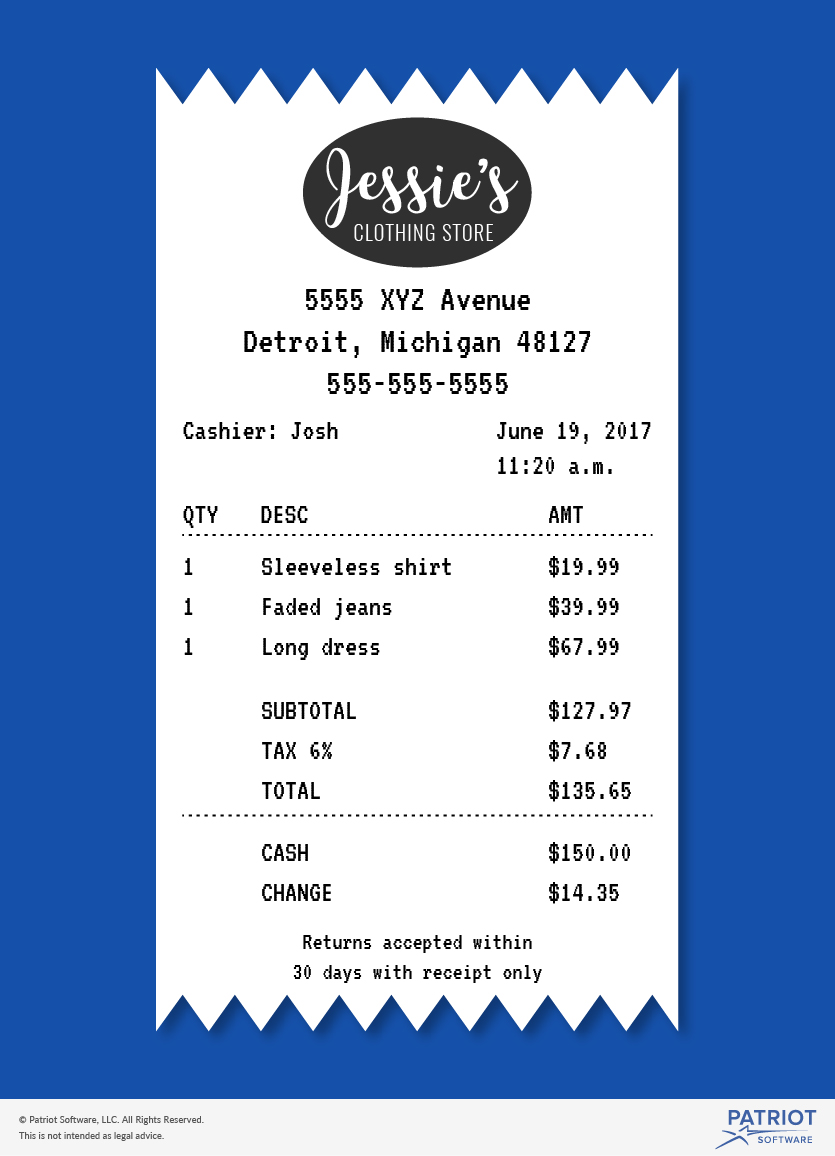When you sell goods or services, you need to create a record of the transaction. Depending on the situation, you will either give customers an invoice or receipt. What is the difference between an invoice and a receipt? Understand invoice vs. receipt distinctions to avoid confusion.
Invoice vs. receipt
Both invoices and receipts are paper or electronic slips that detail purchase transactions. Invoices and receipts are not interchangeable. An invoice is a request for payment while a receipt is proof of payment. Customers receive invoices before they pay for a product or service and receive receipts after they pay.
Invoice
Businesses that provide products or services to customers before receiving payment send invoices. Invoices are bills sent to customers after they have received a good or service.
Invoices are requests for payment. You can send receipts via email or mail. Or, you can hand deliver them.
You won’t invoice every customer. Invoices are used for customers who:
- Make a purchase with store credit
- Have a payment plan
- Are billed in arrears (after receiving a good or service, like a utility)
An invoice is a record that details the transaction. It includes information like the date the invoice was created, invoice payment terms, and the total amount due. And, the invoice provides both seller and buyer contact information, like the name, address, and phone number.
Invoices remind customers that they owe your business money. They are important for speeding up cash flow, making sure you get paid, and keeping financial records for your business.
Invoice example
You sell a washer and dryer to a customer. You will deliver the washer and dryer in two weeks. Their payment is not due until after they receive the washer and dryer. Give the customer an invoice to show how much they owe.
Receipt
A receipt acts as proof of a transaction. You give customers receipts after they have paid for a product or service.
Receipts include information on the goods or services sold, like price, quantity, discounts, and taxes. They also provide information on the payment method, how much was paid, and details about the seller.
In many cases, customers need receipts if they want to make a purchase return or exchange a product. Since the receipt shows products and prices, you can verify the customer purchased the item(s) from your business. For the most part, you should give customers a receipt for each transaction.
Many businesses have a return policy that says customers must have a receipt to return a product. You must decide what kind of return policy you want. Here are some return policy examples:
- No returns without receipts
- Store credit for returns without receipts
- Returns are accepted without receipts
As a small business owner, you need to keep copies of customer receipts because they act as records. And, keep all the receipts you receive from vendors. These supporting documents ensure that your accounting books are accurate. And, you need records if you are audited. Store business receipts for at least three years.
Customer receipt example
You sell clothes to a customer. They pay you with cash at the point of sale.You need to give them a receipt since you made a sale and accepted the cash payment. A week later, the customer returns one of the shirts they bought. Because they have a receipt, you can verify the purchase and exchange the shirt for cash.
At-a-glance difference between invoice and receipt
So, what is the main difference between an invoice and receipt?
- An invoice is a request for payment. You give an invoice after the customer receives their good or service.
- A receipt is proof of payment. You give a receipt after the customer has paid for a good or service.
Customers who receive an invoice will also receive a receipt when they pay. But, customers who pay at the point of sale will not receive an invoice.
Looking for an easy way to handle invoices? Patriot’s online accounting software lets you create and track unpaid invoices. That way, you can speed up cash flow at your small business. And, we offer U.S.-based support. Try it for free today!
This is not intended as legal advice; for more information, please click here.


